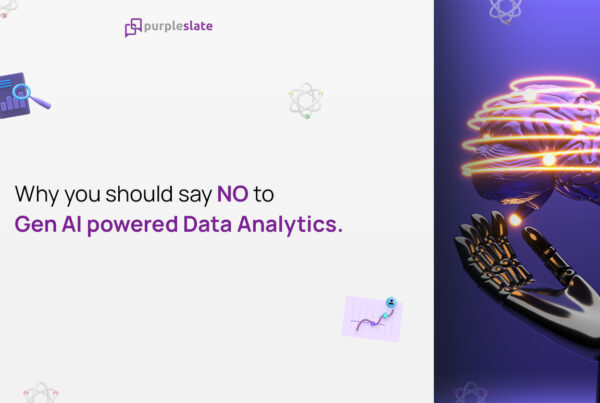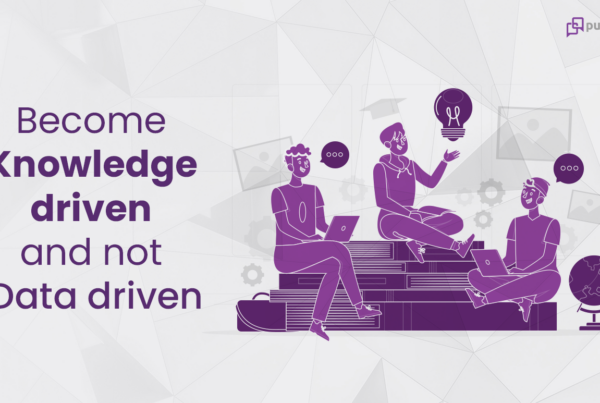
Introduction
Making wise decisions is essential for success in the fast-paced corporate environment of today. Organizations must, however, overcome the difficulty of effectively evaluating enormous volumes of data in order to derive useful insights, given the exponential growth of data. This is where Kea enters the picture, transforming how companies use effective data analysis to streamline their decision-making procedures.
The Era of Big Data: Challenges and Opportunities
In the digital age, data has become the lifeblood of organizations, providing valuable insights into customer behavior, market trends, and operational efficiency. However, the sheer volume and complexity of data present significant challenges for decision-makers. Traditional methods of data analysis often involve manual processes, making it time-consuming and prone to errors.
Challenges of Big Data
Volume Overload: The exponential growth of data means organizations are inundated with vast amounts of information. Managing and analyzing such large volumes of data can overwhelm traditional systems and processes.
Complexity: Big data is not just about the volume but also the variety and velocity of data streams. With data coming in from various sources in different formats and at high speeds, organizations face the challenge of integrating and analyzing diverse datasets.
Data Silos: Data often resides in silos across different departments or systems within an organization. This fragmented data landscape makes it difficult for decision-makers to access and analyze the complete picture, leading to suboptimal decision-making.
Data Quality: Ensuring the quality and accuracy of data is paramount for meaningful analysis. However, with the sheer volume of data being generated, organizations struggle to maintain data integrity, leading to errors and inaccuracies in analysis.
Privacy and Security Concerns: With the increasing emphasis on data privacy and security, organizations must navigate complex regulatory frameworks and ensure compliance with data protection laws. Failure to do so can result in reputational damage and legal consequences.
Opportunities of Big Data
Actionable Insights: Despite the challenges, big data presents immense opportunities for organizations to gain valuable insights into customer behavior, market trends, and operational efficiency. By leveraging advanced analytics and machine learning techniques, organizations can uncover hidden patterns and correlations within their data, enabling them to make informed decisions.
Innovation and Competitive Advantage: Big data serves as a catalyst for innovation, enabling organizations to develop new products, services, and business models. By harnessing the power of data analytics, organizations can gain a competitive edge in the marketplace and drive growth and profitability.
Personalization and Customer Experience: Big data allows organizations to personalize their products and services based on individual customer preferences and behavior. By analyzing customer data, organizations can deliver tailored experiences that meet the unique needs and preferences of their target audience, fostering customer loyalty and satisfaction.
Operational Efficiency and Cost Savings: Big data analytics can help organizations identify inefficiencies, optimize processes, and reduce costs. By analyzing operational data, organizations can streamline workflows, improve resource allocation, and enhance overall efficiency, leading to cost savings and improved performance.
Predictive Analytics and Forecasting: Big data enables organizations to predict future trends and behaviors with a high degree of accuracy. By analyzing historical data and using predictive analytics models, organizations can forecast market trends, anticipate customer needs, and make proactive decisions to stay ahead of the curve.
Enter Kea: A Game-Changer in Data Analysis
Kea, a cloud-based software application, is transforming the landscape of data analysis with its innovative approach. Powered by advanced natural language processing capabilities, Kea enables users to interact with their data in a conversational manner, eliminating the need for complex queries or technical expertise. By simply “talking to their data,” users can quickly and intuitively extract insights, empowering them to make informed decisions with confidence.
Kea’s Advanced Capabilities
Natural Language Processing (NLP)
Kea’s cornerstone lies in its sophisticated NLP capabilities. This technology enables Kea to understand and interpret human language in both verbal and textual forms. By leveraging NLP algorithms, Kea can comprehend complex queries, colloquial language, and nuanced nuances, making it accessible to users with varying levels of technical expertise.
Conversational Interface
At the heart of Kea’s innovation is its conversational interface. Unlike traditional data analysis tools that rely on rigid query languages or predefined commands, Kea allows users to engage in natural conversations with their data. Whether asking simple questions or exploring intricate patterns, users can interact with Kea as they would with a knowledgeable colleague, fostering a seamless and intuitive user experience.
Real-Time Analysis
Kea’s real-time analysis capabilities enable users to receive instant insights and responses to their queries. By leveraging cloud computing infrastructure, Kea can process and analyze data at lightning speed, allowing users to make timely decisions based on the most up-to-date information available.
Adaptive Learning
Kea continually learns and adapts to user interactions, refining its understanding of language and improving its ability to provide accurate and relevant insights over time. Through machine learning algorithms, Kea can identify patterns in user behavior, preferences, and data usage, enabling it to tailor its responses to meet the specific needs of each user.
The Impact of Kea on Data Analysis
Democratizing Data Access
By simplifying the data analysis process and eliminating the need for specialized technical skills, Kea democratizes access to data insights. Now, stakeholders across the organization, from frontline employees to C-suite executives, can leverage the power of data-driven decision-making without being hindered by technical barriers.
Accelerating Decision-Making
With Kea, decision-makers can obtain insights in real-time, enabling them to make faster and more informed decisions. Whether assessing market trends, evaluating performance metrics, or identifying growth opportunities, Kea empowers decision-makers to act swiftly in response to changing business dynamics.
Driving Innovation
Kea’s intuitive interface and advanced analytics capabilities stimulate innovation within organizations. By enabling users to explore data in new and creative ways, Kea fosters a culture of experimentation and discovery, driving innovation and driving business growth.
Enhancing Collaboration
Kea’s conversational interface facilitates collaboration and knowledge-sharing among team members. By enabling users to share insights, ask questions, and explore data together in real-time, Kea promotes collaboration across departments and functions, fostering a culture of data-driven decision-making within the organization.
Real-World Applications of Kea in Decision-Making
Retail Industry
In the retail industry, Kea enables merchants to analyze sales data, customer feedback, and market trends to optimize product offerings, pricing strategies, and promotional campaigns. By leveraging Kea’s conversational interface, retail executives can obtain actionable insights on-demand, driving sales growth and enhancing customer satisfaction.
Healthcare Sector
In the healthcare sector, Kea facilitates data-driven decision-making by analyzing patient outcomes, treatment protocols, and clinical workflows. Healthcare providers can leverage Kea’s advanced analytics capabilities to identify best practices, improve care quality, and reduce costs, ultimately leading to better patient outcomes and operational efficiency.
Financial Services
In the financial services industry, Kea empowers financial analysts and investment managers to analyze market data, economic indicators, and portfolio performance. By leveraging Kea’s real-time analysis capabilities, financial professionals can make informed investment decisions, manage risk effectively, and maximize returns for their clients.
Conclusion
Kea is more than just a data analysis tool – it’s a game-changer in the way organizations leverage data to drive business success. By combining advanced natural language processing capabilities with a conversational interface, Kea democratizes data access, accelerates decision-making, drives innovation, and enhances collaboration within organizations. As businesses continue to embrace the power of data-driven decision making, Kea will undoubtedly play a pivotal role in shaping the future of data analysis.




